SEMrush Review 2025: Is This SEO Toolkit Worth Your Investment?
SEO TOOLS REVIEW
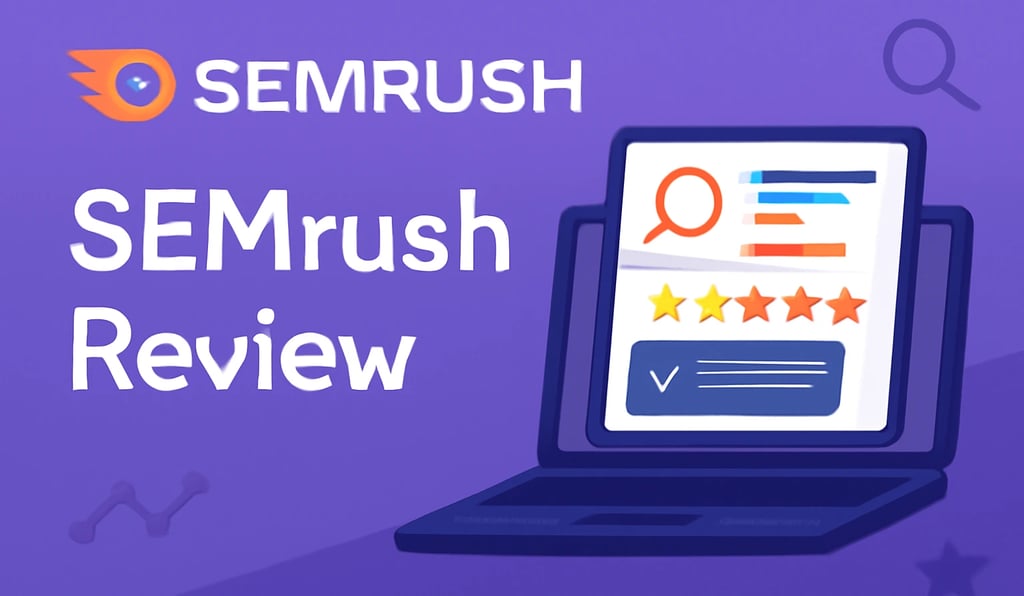

If you’re looking to boost your online presence, having the right tools is essential.
Today, I’m sharing my personal experience with SEMrush in this detailed SEMrush review — giving you an inside look at what makes this platform so powerful.
Whether you're a freelancer, an agency owner, or part of an in-house team, I'll help you figure out if SEMrush deserves a spot in your marketing arsenal.
Let’s dig in! 🚀
What is SEMrush & Who is it For?


In simple terms, SEMrush is an all-in-one digital marketing platform that include tools for SEO, content marketing, PPC, social media management, and competitor research.
But who is it really for?
Freelancers needing a versatile toolkit to deliver full-service SEO packages.
Agencies looking to scale client campaigns with data-driven insights.
In-house teams who want to strengthen their brand’s organic reach and monitor competitors.
Bloggers and affiliate marketers aiming to dominate niche markets.
From what I’ve seen, SEMrush is simply great for beginners — with plenty of helpful resources — and for seasoned pros who need deep, detailed insights.
Key Features: SEMrush
Okay, now let’s explore what SEMrush brings to the table.
1. SEO Toolkit 🔎
Keyword Research Tool
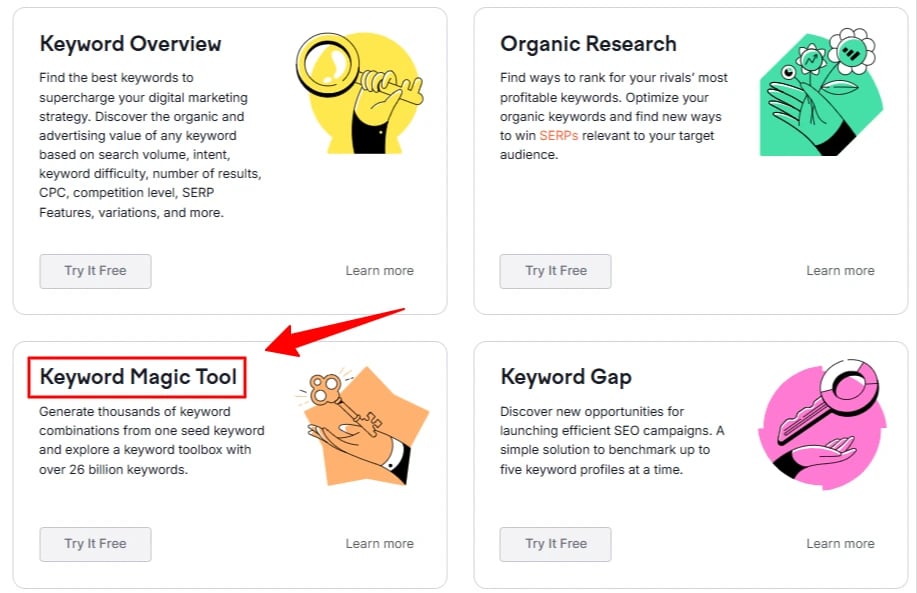

The Keyword Magic Tool truly amazing, it will change the way you find keywords.
It generates thousands of keyword ideas, complete with search volume, keyword difficulty (KD%), CPC, and SERP features.
Personally, it helped me unearth low-competition gems that boosted a client’s blog traffic by 40% in three months.
Site Audit
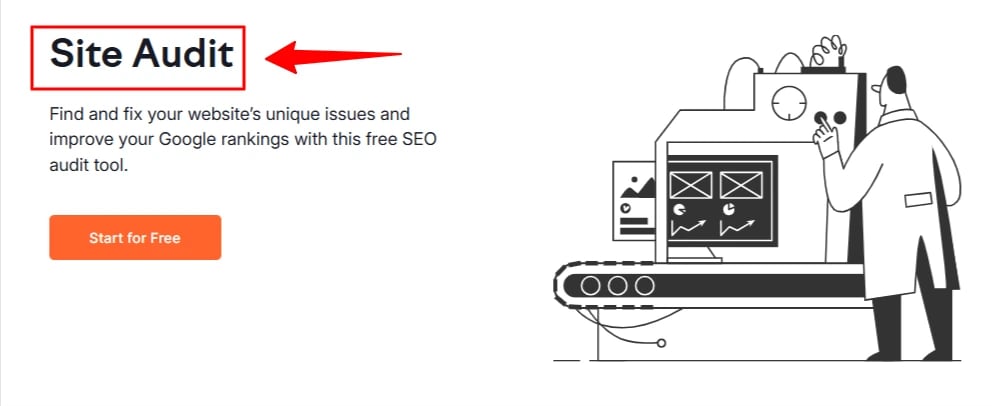

One of the most user-friendly technical audits out there.
It checks over 140 SEO issues (broken links, duplicate content, crawl errors).
I used the site audit to clean up an e-commerce store — leading to a 15% increase in organic traffic post-optimization.
On-Page SEO Checker
Gives practical tips by analyzing your top 10 real-time competitors.
Position Tracking
Monitors daily keyword rankings and visualizes trends via intuitive graphs.
Backlink Audit and Link Building Tool
Analyze your backlink profile.
Discover toxic links and opportunities for new backlinks.
Pro Tip: The backlink database is one of the largest — sometimes even faster than Ahrefs in spotting new links.
2. Competitive Research 🏆
Domain Overview
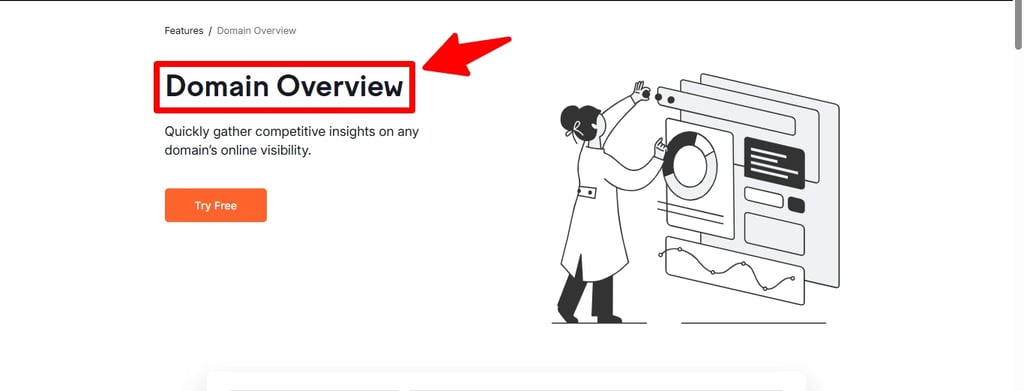

Gives you a snapshot of any website’s SEO, paid search, and display advertising strategies.
Traffic Analytics
Dive deeper into estimated traffic, traffic sources, audience insights, and top pages.
Market Explorer
Identify new market trends and industry benchmarks — a lifesaver when I needed to pitch a new market entry strategy to a client.
3. Content Marketing Platform ✍️
Topic Research Tool
Perfect for brainstorming blog ideas with search demand in mind.
SEO Content Template
Create content optimized for specific keywords based on real competitors.
Post Tracking
Track how your content pieces perform after publishing.
4. Advertising and PPC Analysis 📈
PPC Keyword Tool
Research and organize keywords for ad campaigns efficiently.
Ad Builder and Ad History
Create ad copies and spy on competitor PPC strategies.
I’ve personally used the PPC tools to build competitive campaigns for SaaS clients — with a 30% lower cost-per-click than industry average benchmarks.
5. Social Media Management 📱
Social Poster and Tracker
Schedule posts, monitor performance, and benchmark against competitors.
Ads Management
Track and optimize paid campaigns across Facebook, Instagram, and LinkedIn.
Pros & Cons Of SEMrush
Pros:
All-in-One Toolkit: No need to subscribe to multiple platforms — SEMrush covers SEO, PPC, social, and content marketing.
Incredible Data Depth: From keyword suggestions to backlink databases, the data quality is top-notch.
Competitive Research Made Easy: Spying (ethically!) on competitors becomes effortless.
Customizable Reports: Automate beautiful client reports without lifting a finger each month.
Constant Innovation: New features like AI content generation and keyword intent filters keep SEMrush ahead of the curve.
Cons:
Learning Curve: Beginners might feel overwhelmed initially (though the SEMrush Academy helps).
Pricey for Solopreneurs: Starting plans aren’t cheap if you're running very small projects.
Occasional Data Variations: Traffic estimations, while solid, aren't always 100% accurate — cross-referencing is a must.
Limited Seats per Subscription: You need to pay extra for multiple users.
SEMrush Pricing Explained
Annual billing gets you a discount of 17% in which you will get the Pro Plan at $ 117.33/mo and so on.
Add-ons like "Trends" for competitive research are optional but useful.
SEMrush vs. Key Alternatives
SEMrush vs Ahrefs:
SEMrush wins in breadth (more toolkits like PPC, Social Media).
Ahrefs slightly edges out in backlink data depth.
SEMrush vs Moz Pro:
SEMrush offers a much broader tool suite.
Moz remains strong for those purely focused on basic SEO tasks.
How to Get Started with SEMrush (Quick and Easy)
Getting started with SEMrush is simpler than it looks — trust me!
Sign Up: Head to SEMrush’s website and start a free trial or pick a plan that fits your needs.
Create a Project: After logging in, click "Add New Project," enter your website, and set it up for tracking.
Run a Site Audit: Launch your first site audit to quickly spot SEO issues you can fix right away.
Explore Key Tools: Start with keyword research, position tracking, and backlink audits — no need to dive into everything at once.
Use SEMrush Academy: Take a free course if you get stuck — it’s super beginner-friendly.
Start small, focus on one or two features, and you’ll get the hang of it fast! 🚀
3 Quick Wins You Can Get in Your First Week with SEMrush
1. Find Easy Keyword Opportunities:
Use the Keyword Magic Tool to discover low-competition keywords you can rank for faster — perfect for boosting early traffic.
2. Fix Critical SEO Errors:
Run a Site Audit and tackle the top problem (like broken links or missing meta descriptions) to instantly improve your site's health score.
3. Spy on a Competitor:
Pop a competitor’s domain into the Domain Overview tool and steal their best-performing keywords and backlink strategies (ethically, of course!).
Pro Tip: Stick to small, focused goals in your first week — don’t try to master everything at once. SEMrush rewards consistent use over time. 🚀
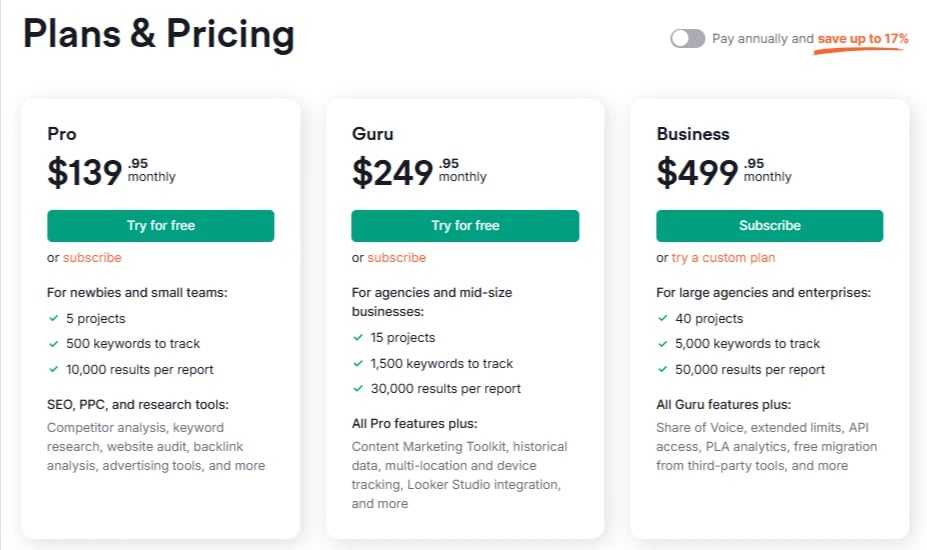

My Personal Verdict: Is SEMrush Worth It?
If you're serious about digital marketing, SEMrush is absolutely worth the investment.
It’s not just an SEO tool — it’s a complete marketing command center.
When I first switched from piecing together different platforms to consolidating everything in SEMrush, productivity skyrocketed. Client results improved faster, and strategy sessions became data-driven rather than guesswork.
👉 Who should get SEMrush?
Agencies wanting a competitive edge.
SEO professionals needing deep insights.
Entrepreneurs ready to scale visibility fast.
👉 Who might skip it?
Total beginners with no budget.
Tiny niche sites that don’t need advanced functionality yet.
Conclusion
SEMrush continues to lead the pack because it simply does more — and does it exceptionally well.
While it's not the cheapest tool out there, the value you gain in time saved, data richness, and strategic insights makes it a smart investment for most serious digital marketers.
If you want to stop guessing and start scaling, SEMrush could be your new best friend.
About Author:


Hi, I'm Reena Raj, a digital marketing consultant with over 8 years of experience diving deep into SEO tools and helping businesses make the most of their online presence. Over the years, I've worked with a variety of businesses—big and small—guiding them through the process of choosing the best tools to improve their search rankings and grow organically.


